This page is currently being updated. Please contact the head of department if you require further information.
Welcome to Retail Business at Frederick Bremer School. At Frederick Bremer School we endeavour to take students on a journey where they are able to build diverse skills to build a wholesome individual ready for the world outside school. In Business studies we encourage students to study how businesses operate and how they become successful and prepare students with a skill set that will equip them for further education/apprenticeships.
Business studies can develop a student’s numeracy, literacy, communication and ICT skills.
Students are also able to develop problem solving and analytical skills through providing real solutions to business scenarios. Students also take part in practical skills such as creating research tools and using them to gather data on the quality of customer service at retail stores.
The sum of Business is far greater than simply its parts. All young people are stakeholders in society and as each individual enters the world of work, continues into higher education or even chooses to run their own business, all will take up their role in the global community. All will have the right to vote within a few years’ time.
Social and environmental issues already affect them, as does the government’s provision of services. Thus, in dealing with these issues, Business is a hugely important, relevant and useful course to young people.
Syllabus
Level 1/2 Award in Retail Business specification introduces students to one of the most important employment sectors in the UK.
Students have the opportunity to explore various aspects of retail business and investigate a range of retailers from large chains and department stores through to independent and virtual stores.
The course consists of three units: two coursework based units (one worth 25% and the other 50%) and one written exam worth 25%. Unit 1 Customer Experience (25%), Unit 2 Retail Business (25%) and Unit 3 Retail Operations (50%).
In Year 10 pupils will learn about the principles of customer service and how retailers use these to set the standards that are at the heart of the customer experience. They will develop research skills so that they can investigate the quality of the customer experience across different retailers, analysing and presenting their findings. They will explore and gain an understanding of how customer service affects the behaviour of both customers and employees. Pupils will also cover issues faced by retailers in today’s highly competitive market.
Furthermore, pupils will also gain knowledge of the retail sectors and how its retailers organise their businesses to respond to change. Students will be able to use the knowledge and understanding you gain in order to recommend how different types of retailers can respond to issues. This will be in the form of a written paper.
In Year 11 pupils will learn about the everyday activities of a retailer and how different retailers organise these activities. They will also learn how retailers prepare for changes by re-organising their operations. They will use what you learn to propose to retailers how they could organise their operations to respond to change.
For further details regarding the curriculum please call or email the head of department, Ms Younes.
What careers can this lead to?
The qualification provides learners with a broad appreciation of work in retail business related industries and wider opportunities for progression into further education, employment or training. There are also opportunities to work in other business sectors such as Finance, Human Resources, Sales and Marketing and management.
Staff List
Ms Younes – Head of Faculty
Mr Hanif – Computing and Business Teacher
Ms Pervaiz – Computing and Business Teacher
Key Information
Exam Board: WJEC
Course Structure: KS4 have 3 lessons per week.
Pupil grouping
Pupils are taught in mixed ability groups
Homework
Homework will be set every week for an hour. Students will be expected to do some flip learning in preparation for lessons, which may amount to watching a video or completing topic reading. They may also have work which was not completed in the lesson, including multiple choice questions on Google Forms and exam style questions. There will also be a range of tasks to encourage independent learning skills, practice exam questions and to research and observe retail stores to see how they operate on a daily basis.
Assessments
Unit One
Internal Coursework (25% of total qualification)
Unit Two
Written paper (25% of total qualification): 75 minutes – 60 marks
Unit Three
Internal Coursework (50% of total qualification)
Pupils are are also assessed during the course to give them a working level:
Year 10 – Cumulative assessments each half term and mock exams in the summer term.
Year 11 – Cumulative assessments each half term amd mock exams – November & March.
How can you help your child?
Getting your child to visit and observe how retail stores operate on a daily basis
Encouraging them to complete their homework
Checking Google Classroom for homework set and catching up lessons
Materials used throughout the subject
Revision Guides
Visits to retail stores
Worksheets
Retail store videos on youtube
Resources
Pupils may also like to use any of the following websites to help further their knowledge.
WJEC Website: Find past papers and mark schemes to practice exam questions to make yourself ready for your final exams.
BBC Bitesize: BBC Bitesize is a free online study support resource designed to help with learning, revision and homework.
